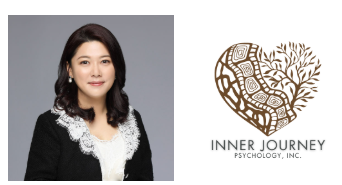A Jungian Perspective on Business Decisions in Uncertain Times
In recent clinical work with my patients, I’ve noticed a recurring theme: entrepreneurs reevaluating their tolerance for risk.
Some are responding to external political and economic shifts like recent changes in tariffs; others are tuning in to the changes brought on by their personal life stage.
One patient, a business founder, described how becoming a mother again dramatically shifted her relationship with risk. What once felt like a thrilling challenge now seemed reckless in light of her needs to support an expanding family.
What stands out is that different individuals have different needs when it comes to decision-making. Rather than constantly pushing ourselves to be bold and embrace risk, I believe we need a more balanced approach—one that respects our personal and psychological rhythms.
This blog is an invitation to tune in to your inner compass and make decisions that are aligned with your deeper values. From a Jungian perspective, this is part of building from the Self, not just from ego or external ambition.
Risk Tolerance Is Fluid, Not Fixed
Risk tolerance isn’t a trait you’re born with and keep forever. It evolves as you grow and change. Your current life circumstances, emotional bandwidth, and recent experiences all affect how you relate to risk. What felt empowering a few years ago might now feel destabilizing.
A founder in her twenties might be energized by jumping into a volatile market. That same person, now navigating family responsibilities or chronic stress, might feel overwhelmed by the same situation. Honoring these shifts is not weakness—it’s wisdom.
In Jungian terms, this kind of internal awareness reflects the lifelong process of individuation—the journey of becoming more whole and integrated as a person.
Life Transitions Change the Way We Relate to Risk
Big life transitions—such as parenthood, illness, or relationship status changes—often awaken a deep instinct to protect, preserve, and slow down. These changes affect how much risk we’re willing or able to take.
In Jungian language, these instincts are connected to the feminine principle—not about gender, but about the archetypal energies of care, containment, and cyclical wisdom. This principle teaches us that tending to life, not just expanding it, is just as valuable.
If you’re in a season of caregiving, reflection, or healing, it makes sense that your approach to business would be different. Building from this place can create more sustainable and resilient entrepreneurship.
Respecting the Inner Compass Instead of External Pressure
In Silicon Valley and other competitive ecosystems, there is enormous collective pressure to pursue high-risk, high-reward strategies. Ambition is celebrated, but often without enough regard for what that ambition is costing us.
Business will always involve some level of risk. But the question is: are you taking a risk that is yours, or one that’s being driven by comparison, fear, or external validation?
When you take the time to reflect on your inner relationship to risk, uncertainty, and fear, you begin to make decisions from a grounded place. Entrepreneurship becomes an authentic path, not a performative one.
In Jungian terms, this means learning to distinguish between your persona (the mask you wear to meet external expectations) and your true Self. The more you live from your Self, the more authentic your business path becomes.
The Shadow Side of Forcing Yourself
When we override our deeper needs and force ourselves to push through, we start to suppress parts of ourselves—our fear, fatigue, or uncertainty. These parts don’t disappear; they go underground into what Jung called the shadow.
The shadow eventually emerges, often in the form of burnout, anxiety, or emotional reactivity. If we’re not aware of what we’re hiding from ourselves, those hidden parts end up sabotaging us.
The work begins with self-awareness—naming and acknowledging the parts of us that feel resistant, afraid, or unsure. Then, with intention and compassion, we can begin the process of shadow work: integrating the disowned parts of our psyche so they no longer control us from behind the scenes.
This isn’t just therapeutic—it’s strategic. You’ll make better business decisions when you’re not in internal conflict.
Entrepreneurship as a Lifestyle of Freedom and Responsibility
Entrepreneurship is often romanticized as a lifestyle of freedom—and it can be. But freedom always comes with responsibility. When you choose to forge your own path, you also choose to take on risk.
The key is to be conscious of how much risk you’re truly able and willing to carry. If you ignore your personal limits—emotional, financial, physical—that risk will eventually backfire on your health and well-being.
As entrepreneurs, we’re not just managing businesses—we’re managing ourselves. Understanding your risk tolerance isn’t optional; it’s part of your job. Tuning into it allows you to take healthy risks while protecting what matters most.
Choosing Wholeness Over Comparison
In a world that rewards speed, growth, and boldness, it takes real strength to move at your own pace. Slower growth or conservative decisions aren’t signs of failure—they can be acts of self-respect and integrity.
Sometimes, the most powerful move is not expansion, but integration. Taking time to reflect, to work through your fears, or to heal before making big moves is not a delay—it’s leadership.
As the CEO of your business and life, working on your own self-awareness and psychological integration is part of your duty. You are not only growing a company—you are growing a life.
Let that life be authentic, aligned, and whole.

Meng-Ju(MJ) Yang, Founder and Licensed Psychologist
Inner Journey Psychology, Inc.
Email: mjyangpsyd@gmail.com
Website: drmjyang.com
https://www.facebook.com/InnerJourneyPsychology
https://www.instagram.com/innerjourney.psychology
https://www.linkedin.com/company/innerjourneypsychology
